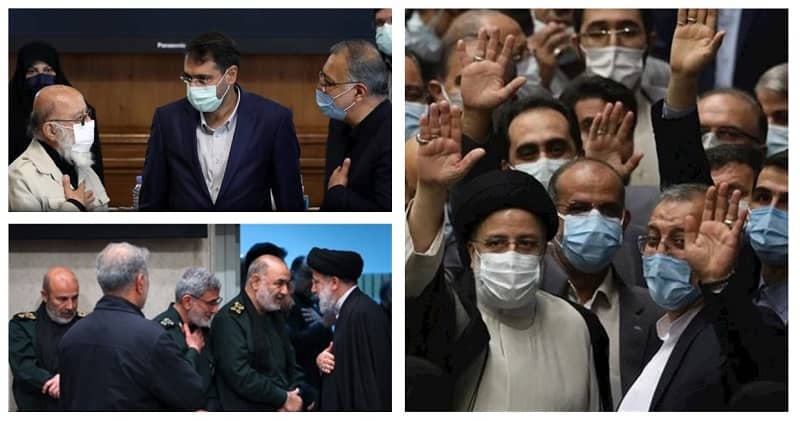
In many countries around the world, high levels of education and expertise in a particular field is usually key to gaining employment in top jobs in society. In Iran, however, regime authorities have resorted to hiring their relatives in governmental positions, regardless of their knowledge and expertise.
Iran News Wire said, “In fact, nepotism in Iran is not a new phenomenon and has been a common practice right from the beginning of the Islamic Republic’s reign. In the Iranian political fabric and formation, family members of ruling elites always play important roles and are considered above and beyond.”
Among Iran’s former presidents, nepotism has been rife over the years. Hashemi Rafsanjani, Mohammad Khatami and Mahmoud Ahmadinejad all recruited and appointed their brothers to top roles within their respective administrations.
Even middle-ranking officials at provincial levels have followed the same trend in hiring close relatives to take over governmental roles. For example, the governor of Sistan and Baluchistan Province appointed his nephew as the governor for the province’s capital city, Zahedan.
Iran News Wire said, “Not many months ago, Iran’s legislative and judicial branches were run by two brothers, Ali Larijani and Sadeq Larijani. Their third brother, Javad Larijani, is the chief of Iran’s Human Rights Council. Their fourth brother, Bagher Larijani, used to be the deputy health minister.”
It appears that the majority of senior officials within the regime have at least one close family member who also occupies a top position within the Iranian government, and this trend doesn’t seem to be ending any time soon.
Recently, the mayor of Tehran Alireza Zakani appointed the role of his special advisor to his son-in-law, Hossein Heidari. When protests in the press and on state television news reports caught the attention of the public with a mix of jokes and sarcasm, Zakani claimed that Heidari was supposed to work for free. However, as public anger and criticism ensued, he was forced to fire Heidari from the position.
Iran News Wire said, “The fact is that cases of corruption and looting of the Iranian people’s resources, as well as nepotism and comradeship in government positions, are common. They are not limited to one administration and have become a common denominator of all administrations.”
Where the regime is concerned, nepotism and corruption are very much institutionalized. With a penchant for the brutal suppression of the Iranian people, regime officials, as well as the leaders, are desperate to hold onto power in the crumbling regime at all costs.
While the state of the economy in Iran lies in ruin, and the Iranian people are becoming poorer day by day, regime officials would rather argue amongst themselves as they jostle for larger shares of power instead of finding solutions to fix Iran’s socio-economic problems.
Iran News Wire said, “The top officials are focused on ensuring that key posts in the government are filled with people they know and trust to push forward with the same ideologies. As a result, family members and close friends are often preferred to people who hold genuine qualifications for the roles.”